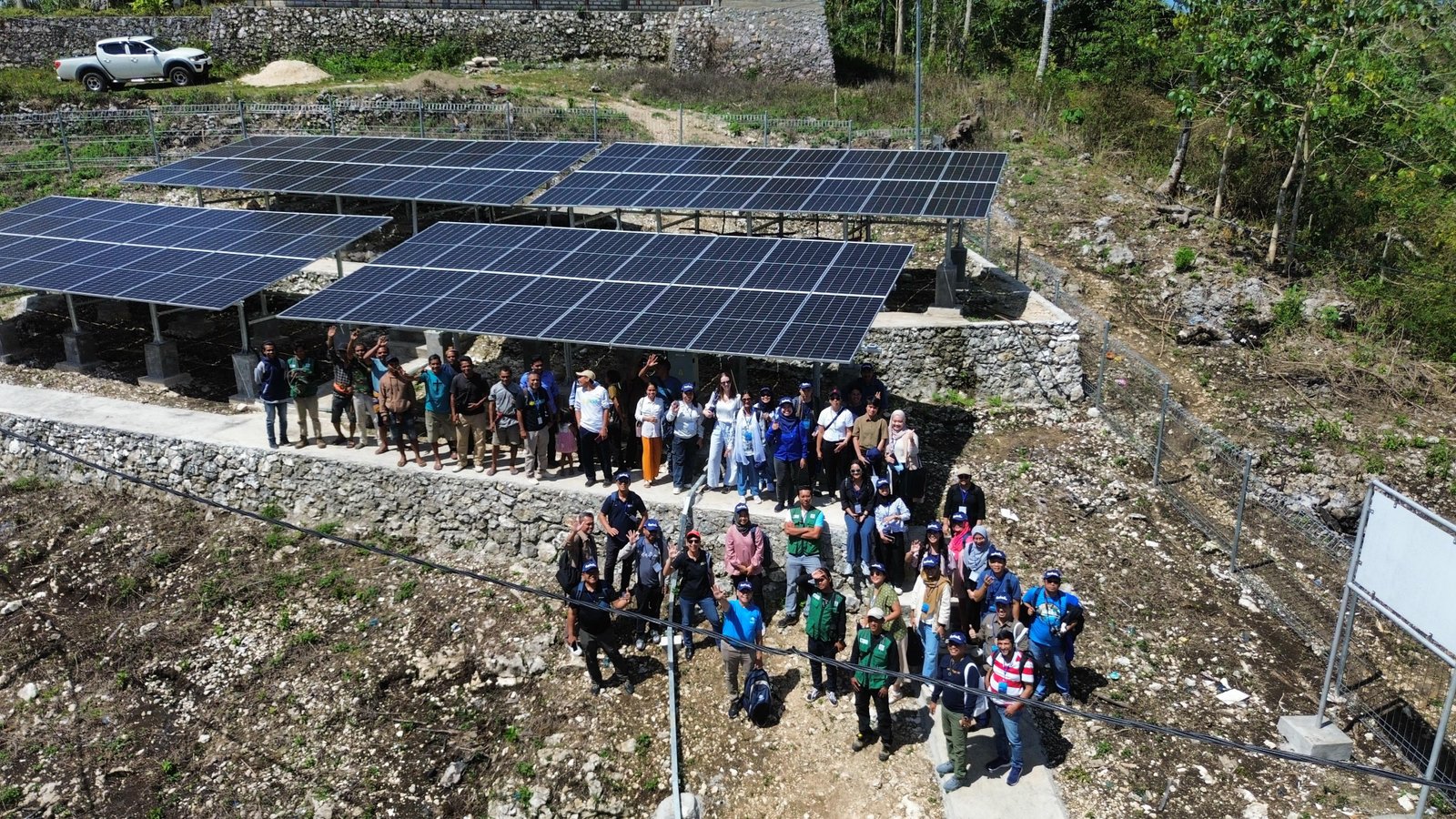
Australia Award in Indonesia (AAI) Delegation Visits ACCESS Project Sites in Indonesia to Learn About Renewable Energy
Illuminating Remote Communities: How Renewable Energy and Gender Inclusion are Transforming Lives in Indonesia
ACCESS was pleased to welcome participants of the Renewable Energy for Remote Communities short course (supported through KINETIK, the Indonesia-Australia Partnership for Climate, Renewable Energy and Infrastructure) organized by Australia Award in Indonesia (AAI), to its operational villages—Mata Wee Lima and Watukarere in East Nusa Tenggara Province. The visit, part of the Pre-Course Workshop delivered by Murdoch University in Australia, brought together 25 participants from various sectors, including businesses, government agencies, NGOs, and other stakeholders in the renewable energy sector from eastern Indonesia, including Bali, NTB, and NTT, to better understand and implement renewable energy systems in regional and remote parts of Indonesia.
During the visit, ACCESS provided a comprehensive overview of its project, which encompass more than just the provision of off-grid solar PV power plants. The comprehensive approach includes capacity building, institutional development, and the use of electricity generated by these plants for purposes beyond mere lighting. A key highlight was ACCESS’ focus on gender inclusion, emphasizing the active participation of women in decision-making processes and ensuring they benefit from these renewable energy initiatives.
ACCESS also included representatives from district and village governments, community members, BUMDesa management, and local operators. The engagement was lively, with participants delving into a range of topics. Discussions covered the handover, management, and ownership of the power plants, operational costs and how villages can sustainably manage them, challenges in involving women, particularly as operators, and the role of cultural leaders in power plant management.
This visit not only demonstrated the successful implementation of renewable energy projects in remote communities but also facilitated a meaningful exchange of ideas and experiences among the participants. One participant shared, "The site visit was a great example of the application of renewable energy in remote communities. Not only were we able to learn about the benefits, but the challenges of getting the project up and running were the most interesting part for me." Another participant added, "The site visits provide the reality of the challenges of the microgrids in remote areas," highlighting the complexities of these initiatives.
For some, the experience was particularly eye-opening. "Participating in the site visit showed me that electrical energy is extremely valuable for communities living in remote areas," one participant noted. This sentiment was echoed by another, who shared, "I liked visiting the renewable energy site because it helped me get a clearer picture of the problems from the field."
ACCESS remains committed to empowering these communities through sustainable energy solutions and looks forward to further collaboration. Ultimately, this visit was far more than a simple field trip; it showcased the transformative impact of renewable energy in remote areas, highlighting how collaboration and innovation can illuminate the path to a brighter future. It serves as a powerful reminder of what is possible and aims to inspire course participants to initiate new, forward-thinking projects in the field of renewable energy.
